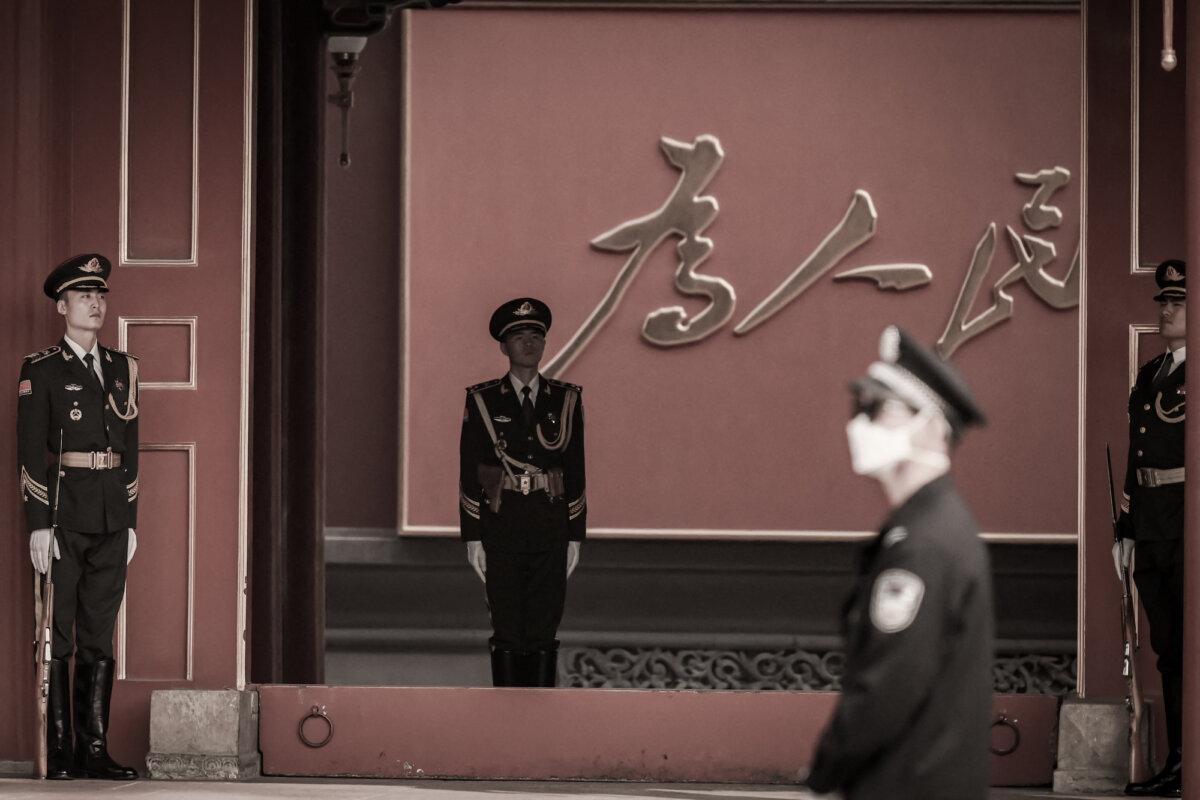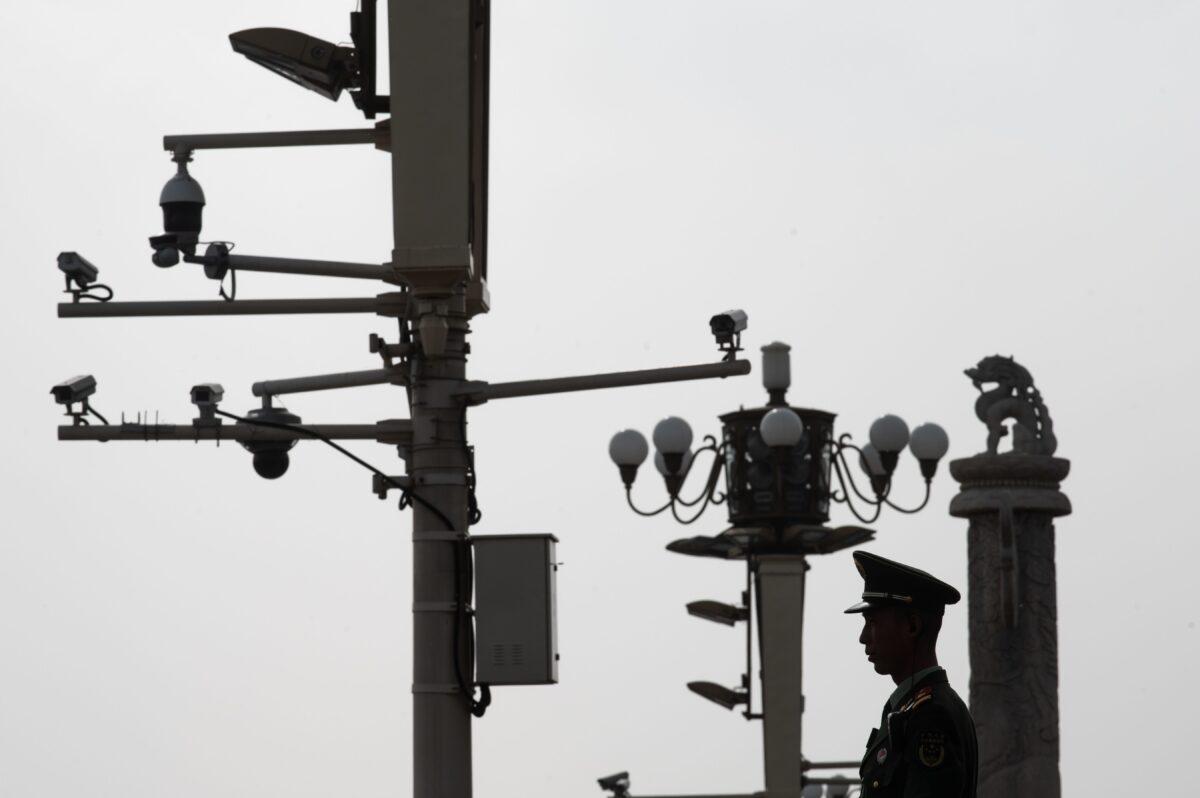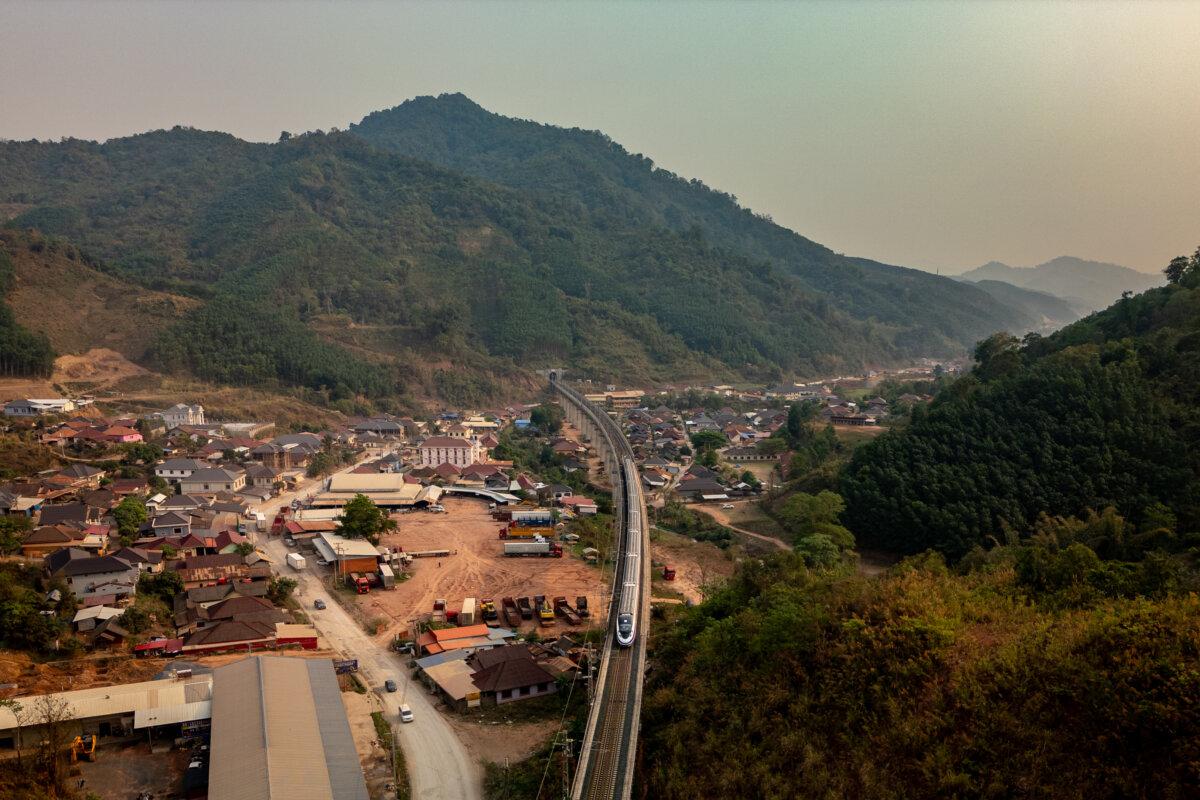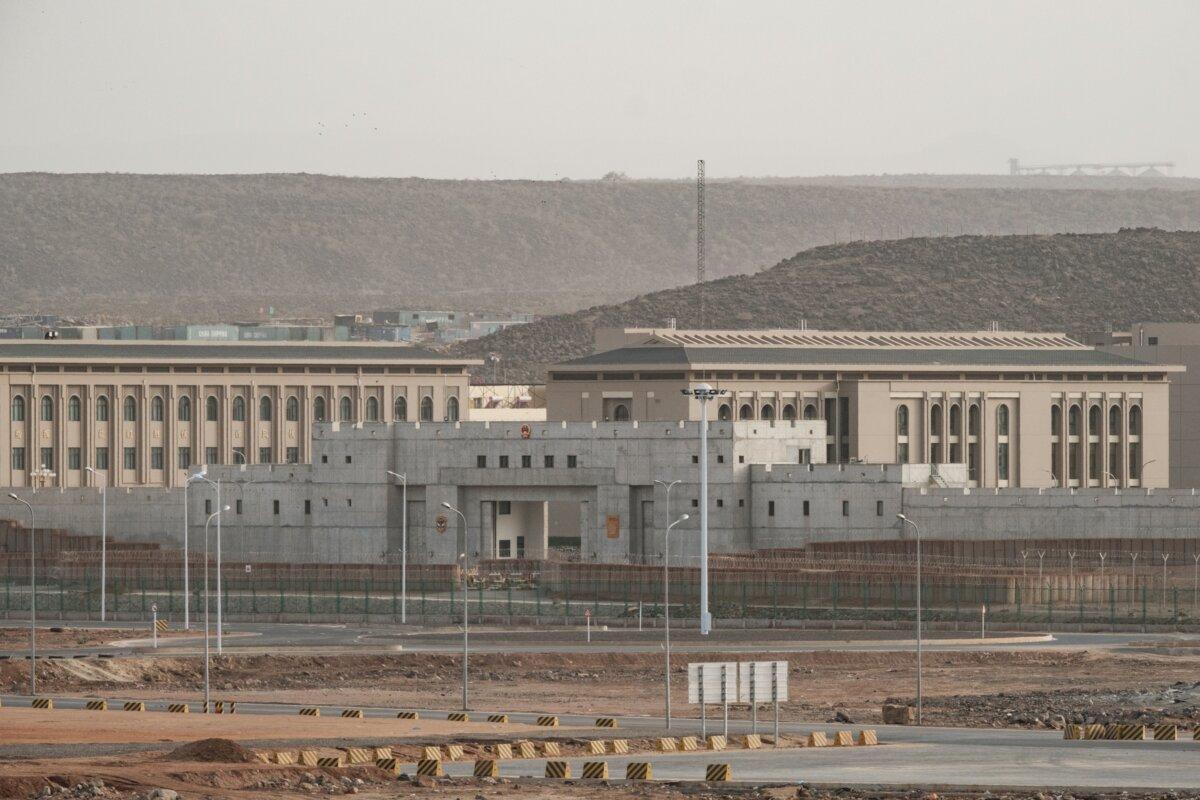
Workers build the keel of a ship at the state-owned Guangzhou Shipyard Guangdong Province, southern China, in a file photo. China Photos/Getty Images
China Merchants Group Limited, the parent company of the Chinese state-owned firm contracted by BC Ferries to build new vessels, has faced international scrutiny over its global activities, including allegations of debt-trap diplomacy through China’s Belt and Road Initiative and efforts aimed at furthering Beijing’s goals abroad.
BC Ferries announced last month it had selected China Merchants Industry Weihai Shipyard to build four new vessels, following a “rigorous global procurement process” in which no Canadian firms participated. The choice is estimated to save about $1.2 billion compared to building the ships in Europe.
BC Ferries’ deal with the Chinese company has drawn criticism from federal and provincial politicians, who cite lost opportunities for Canada’s domestic shipbuilding industry, ongoing tariff tensions with China, and potential national security risks associated with building the vessels in China.
The debate heated up late last month when the Canada Infrastructure Bank announced it was providing a $1 billion loan to BC Ferries for the purchase of the new vessels, prompting the federal transport committee to launch a study this week into the funding.
B.C. shipyard Seaspan said it did not participate in the bidding process, citing the difficulty of competing with countries that have lower industry standards. The company noted that given BC Ferries’ focus on affordability, no Canadian or B.C. bidder would be incentivized to bid on the project.
“Canadian shipyards and their supply chains cannot compete with low wage countries that have lower employment standards, lower environmental standards and lower safety standards than Canada and BC,” the company said in a Sept. 26, 2024, statement, following BC Ferries’ release of its criteria for the procurement process.
As the controversy continues to play out, what is China Merchants Industry Weihai Shipyard, and why is its deal with BC Ferries causing concern?
State-Owned Enterprise
The shipyard is operated by a subsidiary of China Merchants Group Limited, a state-owned conglomerate that describes itself as a “key state-owned enterprise directly administered by the central government.” The China Merchants Group (CMG) operates in three business sectors, including transport infrastructure, finance, and property development.
CMG’s chairman Miao Jianmin served as an alternate member of the Chinese Communist Party’s (CCP) 19th Central Committee and currently holds the same position in the 20th Central Committee. The Central Committee is the Party’s decision-making body. While alternate members may attend Party meetings, they do not have voting rights like full members.

Security personnel stand guard at Zhongnanhai near Tiananmen Square ahead of China’s 20th Communist Party Congress in Beijing on Oct. 13, 2022. Noel Celis/AFP via Getty Images
As a Chinese enterprise, the CMG must comply with the regime’s national security laws, which mandate all individuals and organizations in China to hand over data to the state when required for intelligence work.
Meanwhile, as a state-owned enterprise, CMG is linked by extension to China’s People’s Liberation Army (PLA), with its operations in overseas ports aligning with Beijing’s Belt and Road Initiative and the PLA’s expansion of naval power.
Security Risks
A 2024 U.S. government report on Beijing’s strategic investments in the U.S. maritime industry outlines the risks posed by Chinese state-owned enterprises at foreign ports, including the collection of sensitive data through components sold to other countries.
Through its state-owned companies, the Chinese regime has positioned itself as a dominant force in the global maritime sector, the report says, by leveraging advantages like cheap labour and subsidized materials.
“This dominance has been achieved through a complex system of state support, including financing from state banks, direct subsidies, preferential borrowing rates, state-backed fundraising, and other nonmarket advantages,” the report says.
The report cites the case of ship-to-shore cranes used in U.S. ports, 80 percent of which are produced by Chinese state-owned enterprise Shanghai Zhenhua Heavy Industry Co., Ltd. (ZPMC), due to a lack of domestic manufacturing alternatives.

A Chinese paramilitary policeman stands guard before security cameras at Tiananmen Square in Beijing on April 8, 2019. STR/AFP via Getty Images
It raises concerns over the use of equipment and technology originating from China, noting that even components from third-party contractors are sent to China for installation. It adds that third-party components sent to ZPMC are directed to its “Changxing Base” on Shanghai’s Changxing Island, near the Jiangnan Shipyard, “where the People’s Liberation Army Navy’s most advanced warships are built,” describing such proximity as “concerning.”
It also mentions the discovery of “unauthorized cellular modems” installed on Chinese-made cranes bound for U.S. ports.
“According to sensitive documents reviewed by the Committees, these cellular modems, not requested by U.S. ports or included in contracts, were intended for the collection of usage data on certain equipment,” reads the report.
The issue of national security risks associated with having a Chinese state-owned shipyard build vessels for BC Ferries has also figured prominently in public discussions in Canada.
Federal Transport Minister Chrystia Freeland asked B.C. Transport Minister Mike Farnworth in a June 16 letter to outline the measures BC Ferries will implement to mitigate security threats from China.
“There have also been ongoing concerns regarding threats to security, including cybersecurity, from China,” she wrote. “I would like your assurance that BC Ferries conducted a robust risk assessment, and I expect them to engage with the relevant provincial and federal security agencies and departments to mitigate any security risk.”
B.C. Conservative MLA Harman Bhangu, who serves as his party’s transportation critic, has raised similar concerns.
“I’ve been raising the alarm for a month now about the threat to our NATIONAL SECURITY with these ferries being built in China,” he wrote in a July 6 social media post.
“What happens when these vessels are operational? What kind of data will they quietly be collecting? Passenger movement, travel patterns, operational systems? We’ve seen how embedded technology can be exploited.”
Belt and Road Initiative, Naval Expansion

A train on the China-Laos high-speed railway, a key project of China’s Belt and Road Initiative connecting China’s Kunming to Laos’ Vientiane, arrives in the Boten Special Economic Zone in Boten, Laos, on April 10, 2024. Lauren DeCicca/Getty Images
The China Merchants Group “actively participates” in China’s Belt and Road Initiative, according to the regime, with its subsidiary, China Merchants Port Group, operating 51 ports across 26 countries and regions, according to the company’s 2024 annual report.
The Belt and Road Initiative (BRI) is Beijing’s global infrastructure investment and lending program, which China says aims to “promote connectedness of infrastructure and build a community of common interests.”
However, the initiative has been flagged by multiple governments due to concerns over transparency, predatory lending practices, and potential geopolitical implications. Meanwhile, BRI has long been plagued by accusations of corruption, fraud, environmental degradation, and labour exploitation.
The Canadian Security Intelligence Service describes BRI as a strategy to “put China at the centre of international trade” while inviting participating countries “to bandwagon and align politically with Beijing’s national interests.”
The U.S. government characterizes BRI as a strategy for Beijing to amass “political, military, and economic leverage over participating countries through the accrual and manipulation of debt.” It has also raised the alarm over the project’s use of forced labour.
The China Merchants Group’s BRI-aligned projects include Sri Lanka’s Hambantota Port, which became mired in controversy in 2017 when the Sri Lankan government agreed to lease the port to a subsidiary of CMG for 99 years and give it a controlling equity stake after facing difficulties repaying the loans used to develop the port.
While Sri Lankan officials said the port would not be used for military purposes, a Chinese military survey ship, identified as Yuan Wang 5, docked at the port for a week in August 2022, with India, Sri Lanka’s northern neighbour, raising concerns that China could use the port as a military base.
Then, in 2018, the government of Djibouti, a country in East Africa, seized control of its Doraleh Multipurpose Port, terminating the concession rights of Dubai-based port operator DP World, which previously operated the port. The local government then partnered with China Merchants Group to develop the facility.

A photo shows buildings of a Chinese military base next to Doraleh Multi-Purpose Port in Djibouti, on July 4, 2018. Yasuyoshi Chiba/AFP via Getty Images
China’s first overseas military base for the People’s Liberation Army Navy is near the Djibouti port. As of 2024, China had 2,000 troops permanently stationed at this base, which also features a pier capable of accommodating an aircraft carrier, according to the 2024 U.S. government report.
“This dual-purpose facility exemplifies the connections between commercial infrastructure and military capabilities,” reads the document.
The London Court of International Arbitration ruled in 2020 that the Djibouti government’s decision was a breach of the contract with DP World. The Dubai-based port operator sued China Merchants Group, with its lawsuit alleging that CMG went as far as pressuring Djibouti’s government to expel DP World from the country.
